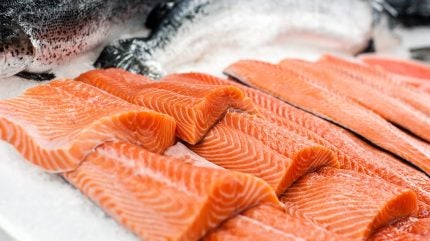
Canadian salmon farmer Cooke is considering leaving its Chile operations after the country’s environmental regulator acted to prevent the company from restarting its farms in the Laguna San Rafael National Park.
Cooke Chile has been at loggerheads with the Environmental Superintendent (SMA) since 2021 when the regulator sanctioned the company for nine infractions, halting operations at three of its farms: Huillines 2, Huillines 3 and Punta Garrao, all in Aysén region.

Discover B2B Marketing That Performs
Combine business intelligence and editorial excellence to reach engaged professionals across 36 leading media platforms.
The most recent court order came on 1 April for a further 30-day suspension of activities at Huillines 3 after SMA lawyer Katharina Buschmann contacted the court to request its imposition.
Cooke maintains it has the support of the Secretariat of Fisheries and says, while its farming activities are unchanged since 1997, it is the court’s legal interpretation that has changed.
“The rule of law is at stake here,” Cooke Chile’s lawyer David Cademartori told the court on 1 April.
“There is a risk of a serious investor, of Canadian origin, withdrawing from the country because the legal norms that regulate its economic activity are not being respected,” Cademartori added.

US Tariffs are shifting - will you react or anticipate?
Don’t let policy changes catch you off guard. Stay proactive with real-time data and expert analysis.
By GlobalDataCademartori did recognise the company’s failure to carry out pollution modelling ordered by the SMA. “We were ordered to incur, a company that has been paralysed for more than four years, that is losing investment day by day, a cost to leave the SMA reassured that there was no environmental damage.”
Buschmann did not respond to a request for comment.
Cooke Chile chief executive Andres Parodi expressed his consternation on LinkedIn. “Why do we do all the procedures and comply with the rules … if in the end it is the SMA that decides at its discretion whether or not we can work?”
But in comments published by aquaculture news website aqua.cl, Parodi expressed hope that the company can remain in Chile. “We trust that justice will finally be done and the law will be respected and the contribution to the country of the aquaculture sector, which is the main economic activity in vast regions of southern Chile, will be respected,” he said.
Cooke declined to comment when contacted by Just Food.





